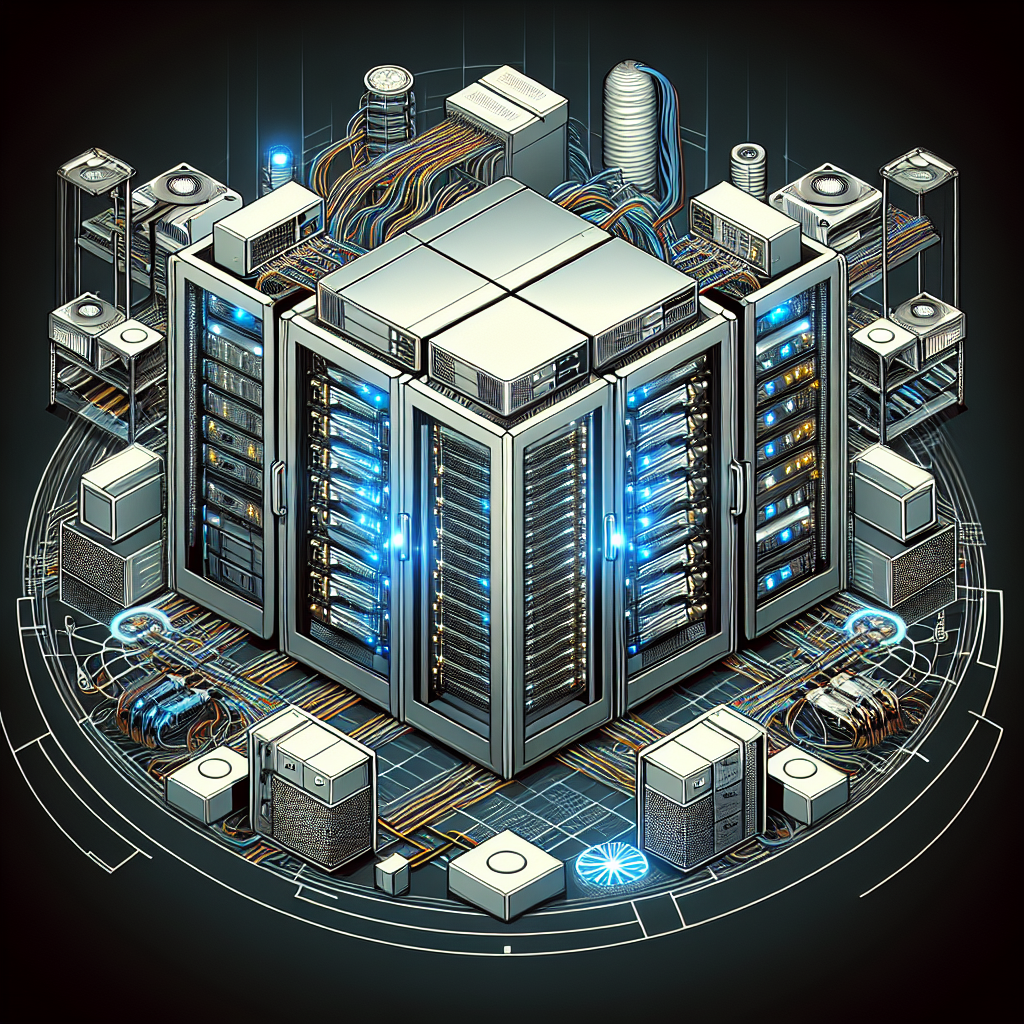Your cart is currently empty!
Tag: Critical

The Impact of Downtime on Business: Why Data Center Uptime is Critical
Downtime is an unavoidable reality for any business that relies on technology. Whether it’s due to a power outage, hardware failure, or even a natural disaster, downtime can have a significant impact on a company’s bottom line. In fact, according to a recent report by the Ponemon Institute, the average cost of downtime for businesses is $5,600 per minute.One of the key factors that can minimize downtime and its impact on a business is data center uptime. Data centers are the backbone of modern businesses, housing the servers, storage, and networking equipment that keep critical applications and data running smoothly. When a data center experiences downtime, it can have far-reaching consequences for a business, including lost revenue, decreased productivity, and damage to its reputation.
Data center uptime is critical for several reasons. First and foremost, it ensures that businesses can access their applications and data whenever they need them. This is especially important for companies that rely on real-time data processing, such as financial institutions or e-commerce websites. Without a reliable data center, these businesses risk losing customers and revenue.
Second, data center uptime is essential for maintaining the security and integrity of a company’s data. A data center outage can leave sensitive information vulnerable to hackers or other malicious actors, putting the business at risk of data breaches and compliance violations. By ensuring that their data center is always up and running, businesses can protect their most valuable assets and maintain the trust of their customers.
Finally, data center uptime is critical for ensuring business continuity. In today’s fast-paced digital world, even a few minutes of downtime can have a ripple effect on a company’s operations. From missed deadlines to lost opportunities, the impact of downtime can be felt across all areas of a business. By investing in a reliable data center with high levels of uptime, businesses can minimize the risk of disruptions and keep their operations running smoothly, even in the face of unexpected events.
In conclusion, the impact of downtime on business cannot be overstated. From lost revenue to damaged reputation, the consequences of data center outages can be severe. By prioritizing data center uptime and investing in reliable infrastructure, businesses can minimize the risk of downtime and ensure that their operations remain resilient in the face of adversity. Ultimately, data center uptime is not just a technical concern – it’s a critical business imperative that can make or break a company’s success.

Data Center Resilience: A Critical Component of Modern IT Infrastructure
In today’s digital age, data centers play a crucial role in the success of businesses and organizations. These facilities house the critical infrastructure needed to store, process, and manage vast amounts of data that are essential for daily operations. As such, ensuring the resilience of data centers has become a top priority for IT professionals.Data center resilience refers to the ability of a data center to withstand and recover from various disruptions, such as power outages, natural disasters, cyberattacks, and equipment failures, without compromising the integrity and availability of data. In other words, a resilient data center is one that can continue to operate smoothly and efficiently even in the face of unexpected challenges.
There are several key components that contribute to the resilience of a data center. These include redundant power supplies, backup generators, uninterruptible power supply (UPS) systems, cooling systems, fire suppression systems, and physical security measures. By implementing these components, data center operators can minimize the risk of downtime and data loss, and ensure that their systems remain operational under all circumstances.
In addition to physical infrastructure, data center resilience also requires robust disaster recovery and business continuity plans. These plans outline the steps to be taken in the event of a disruption, such as how data will be backed up and restored, how services will be rerouted, and how communication with stakeholders will be maintained. By having these plans in place, organizations can minimize the impact of disruptions and quickly recover from them.
Data center resilience is especially important in today’s interconnected world, where businesses rely heavily on digital technologies to operate. Downtime or data loss can have severe consequences, including financial losses, damage to reputation, and loss of customer trust. As such, investing in data center resilience is not only a matter of best practice but also a critical business imperative.
In conclusion, data center resilience is a critical component of modern IT infrastructure. By ensuring that data centers are equipped with the necessary redundancies, backups, and disaster recovery plans, organizations can minimize the risk of disruptions and ensure the continuous availability of their data and services. As technology continues to evolve and businesses become increasingly reliant on digital operations, the importance of data center resilience will only continue to grow.

Data Center Disaster Recovery: Strategies for Minimizing Downtime and Protecting Critical Information
Data Center Disaster Recovery: Strategies for Minimizing Downtime and Protecting Critical InformationIn today’s digital age, data centers play a crucial role in storing and managing vast amounts of critical information for businesses and organizations. However, with the increasing frequency and severity of natural disasters, cyber attacks, and other unforeseen events, the need for effective disaster recovery strategies has never been more important.
Data center downtime can have a significant impact on a business, leading to lost revenue, damaged reputation, and potential legal implications. Therefore, it is essential for organizations to implement robust disaster recovery plans to minimize downtime and protect critical information.
Here are some key strategies for minimizing downtime and protecting critical information in the event of a disaster:
1. Backup and Recovery: One of the most fundamental aspects of disaster recovery is having a comprehensive backup and recovery plan in place. This involves regularly backing up data and storing it in multiple locations, both on-site and off-site. Cloud-based backup solutions can also provide an added layer of protection by storing data in secure remote servers.
2. Redundancy and Failover: Redundancy is another critical component of disaster recovery. By having redundant systems and failover mechanisms in place, organizations can ensure that their data center operations can continue uninterrupted in the event of a hardware failure or other issue. This may involve having duplicate servers, storage devices, and networking equipment that can seamlessly take over in the event of a failure.
3. Disaster Recovery Testing: It is not enough to simply have a disaster recovery plan in place – organizations must also regularly test and update their plans to ensure they are effective. Regularly conducting disaster recovery tests can help identify any weaknesses or gaps in the plan and allow for adjustments to be made before a real disaster strikes.
4. Data Encryption and Security: In addition to protecting data from physical disasters, organizations must also safeguard their data from cyber threats. Implementing strong data encryption and security measures can help prevent unauthorized access to critical information and ensure that data remains secure in the event of a breach.
5. Partnering with Disaster Recovery Experts: For organizations that may not have the resources or expertise to develop and implement a comprehensive disaster recovery plan on their own, partnering with disaster recovery experts can be a valuable solution. These experts can help assess the organization’s needs, develop a customized disaster recovery plan, and provide ongoing support and monitoring to ensure that the plan remains effective.
In conclusion, data center disaster recovery is a critical aspect of business continuity planning in today’s digital age. By implementing robust backup and recovery strategies, redundancy and failover mechanisms, regular testing, data encryption, and partnering with disaster recovery experts, organizations can minimize downtime and protect their critical information in the event of a disaster. Investing in effective disaster recovery strategies is essential for ensuring the long-term success and resilience of any organization.
